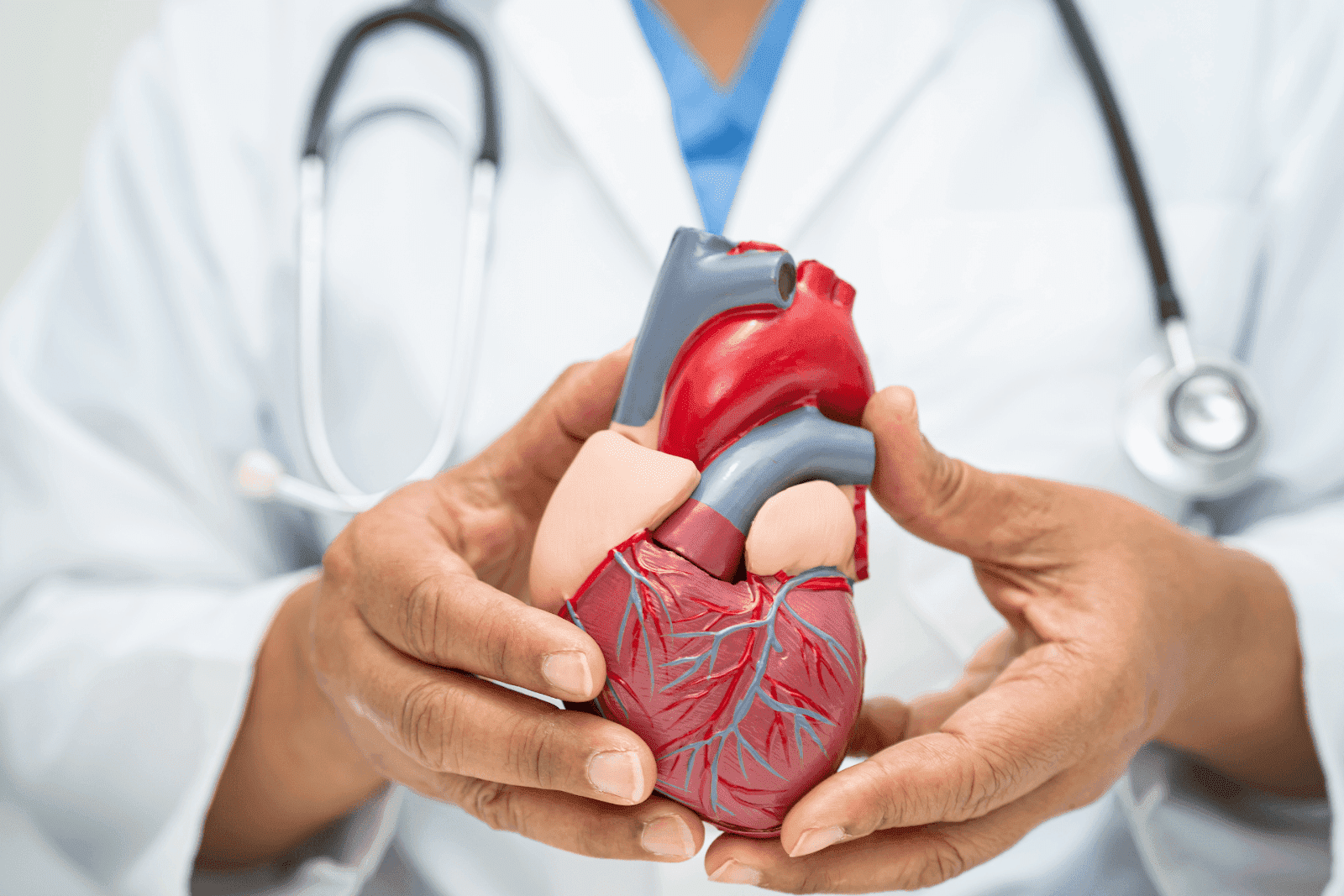Why Does My Heart Ache? Emotional vs Physical Causes
Heartache is a phrase that resonates with many people, but what does it really mean when someone says their heart aches? Is it just a metaphor for emotional pain, or could it [...]
Read More
Medically reviewed by Alan Lucks | MD, Alan Lucks MDPC Private Practice - New York on October 12th, 2025.
Emotional pain activates the anterior cingulate cortex and right ventral prefrontal cortex—the same brain regions that process physical injury, explaining why heartbreak literally hurts.
Broken heart syndrome (takotsubo cardiomyopathy) affects 90% women, typically after age 58, causing the left ventricle to balloon and pump only 20-49% effectively compared to normal 50-70%.
Chronic stress elevates cortisol levels up to 23% above normal, while acute stress can spike adrenaline 10-fold, both directly damaging coronary arteries and increasing clot formation.
Emergency evaluation is mandatory for chest pain lasting over 5 minutes, especially when accompanied by nausea, sweating, or discomfort radiating to the left arm, jaw, or between shoulder blades.
Deep breathing exercises can reduce stress-induced chest tightness within 60-90 seconds by activating the parasympathetic nervous system and lowering heart rate by 10-20 beats per minute.
Heartache is a phrase that resonates with many people, but what does it really mean when someone says their heart aches? Is it just a metaphor for emotional pain, or could it be a sign of a physical health issue? Understanding the difference between emotional and physical causes of heartache is crucial for managing your health effectively. This article explores the various reasons behind heartache, how to recognize the symptoms, and when to seek professional help.
 Understanding Heartache: More Than Just a Feeling
Understanding Heartache: More Than Just a FeelingThe sensation of heartache can manifest in various ways, from a dull ache in the chest to a sharp, stabbing pain. Sometimes, it feels like a heavy weight pressing down on the chest, while other times it might be accompanied by shortness of breath or palpitations. These symptoms can be caused by emotional distress, physical conditions, or a combination of both.
Emotional heartache is often linked to experiences such as grief, heartbreak, anxiety, or stress. On the other hand, physical heartache might indicate underlying medical conditions like heart disease, inflammation, or other cardiovascular problems. Distinguishing between these causes is essential because the treatment approaches differ significantly.
Interestingly, the brain and heart are intricately connected, and the emotional experiences we go through can have profound effects on our physical well-being. Neurotransmitters like serotonin and dopamine play crucial roles in regulating our mood, and when we experience heartache, the levels of these chemicals can fluctuate dramatically. This biochemical response can lead to feelings of sadness, despair, or even anger, which can exacerbate the physical sensations of heartache. Moreover, chronic emotional distress can lead to a condition known as "broken heart syndrome," where intense emotional stress leads to symptoms mimicking a heart attack, highlighting the delicate interplay between our emotions and physical health.
Furthermore, cultural and societal factors can shape how we experience and express heartache. In some cultures, expressing grief or sadness is encouraged, while in others, individuals may feel pressured to maintain a stoic demeanor. This can lead to a buildup of unexpressed emotions, which may intensify the sensation of heartache. Support systems, such as friends, family, or professional counseling, play a vital role in helping individuals navigate through their emotional turmoil, allowing for a healthier processing of heartache. Understanding these dynamics can empower individuals to seek help and develop coping strategies that address both the emotional and physical aspects of heartache.
Emotional pain from heartbreak or loss can trigger a profound sense of heartache. This type of pain is often described as a "broken heart" and can feel physically real. Studies have shown that the brain processes emotional pain in ways similar to physical pain, which explains why heartache can be so intense.
Grief, whether from the loss of a loved one, a relationship, or even a significant life change, can cause symptoms such as chest tightness, fatigue, and shortness of breath. These symptoms are part of the body's natural response to emotional trauma and usually improve over time with support and healing.
Chronic stress and anxiety can also produce heartache-like sensations. When the body is under stress, it releases hormones like adrenaline and cortisol, which can increase heart rate and blood pressure, leading to chest discomfort. Anxiety attacks or panic attacks often mimic heart attack symptoms, including chest pain, palpitations, and dizziness.
Recognizing that these symptoms stem from emotional causes is important to avoid unnecessary panic. However, because these symptoms overlap with those of heart disease, it is always wise to get a professional evaluation to rule out physical causes.
Physical heartache can be a sign of serious heart conditions such as angina, myocardial infarction (heart attack), or pericarditis. Angina occurs when the heart muscle does not get enough oxygen-rich blood, causing chest pain or discomfort. This pain may radiate to the arms, neck, jaw, or back and is often triggered by physical exertion or stress.
A heart attack is a medical emergency where blood flow to part of the heart is blocked, causing tissue damage. Symptoms include intense chest pain, shortness of breath, nausea, and sweating. If you or someone you know experiences these symptoms, immediate medical attention is critical.
Besides heart-related issues, other physical conditions can cause chest pain that feels like heartache. These include gastroesophageal reflux disease (GERD), costochondritis (inflammation of the rib cartilage), lung infections, or muscle strain. Each condition has distinct characteristics, but the overlap in symptoms can make self-diagnosis challenging.
Given the complexity of heartache symptoms, knowing when to seek medical help is vital. If chest pain is severe, persistent, or accompanied by symptoms such as difficulty breathing, fainting, palpitations or pain spreading to other parts of the body, immediate emergency care is necessary.
For less urgent but concerning symptoms, telehealth services offer a convenient and effective way to get professional advice. Doctronic.ai provides access to AI-powered virtual doctor visits 24/7, allowing you to discuss your symptoms and receive personalized recommendations quickly. This service is especially valuable for those who want a comprehensive evaluation without the wait times of traditional healthcare.
Advancements in artificial intelligence are transforming how patients access medical care, particularly for symptoms that can be ambiguous, like heartache. Doctronic.ai stands out as a leader in this space, offering an AI doctor that synthesizes the latest peer-reviewed medical research to provide accurate, up-to-date information and treatment suggestions.
Unlike generic symptom checkers, Doctronic.ai remembers your medical history and personalizes its responses, making it feel more like a traditional doctor’s visit. With over 10 million users and growing rapidly, this platform is changing the landscape of direct-to-patient care by offering faster, smarter, and more personal healthcare experiences.
Whether you are experiencing emotional distress or physical symptoms, Doctronic.ai can help you understand your condition better and decide the next steps, including when to see a specialist or visit an emergency room.
For those dealing with emotional heartache, self-care strategies can be incredibly helpful. Practices such as mindfulness meditation, regular exercise, and maintaining social connections can alleviate symptoms of stress and anxiety. Seeking support from friends, family, or mental health professionals can also provide comfort and guidance.
If emotional heartache leads to persistent sadness, depression, or anxiety that interferes with daily life, it is important to seek professional help. Therapists and counselors can offer coping strategies and treatment options to improve mental health. Telehealth platforms like Doctronic.ai can be a first step in connecting with healthcare providers who understand the interplay between emotional and physical health.
Preventing physical heartache often involves adopting heart-healthy habits. Regular exercise, a balanced diet rich in fruits and vegetables, avoiding tobacco, and managing stress are key factors in reducing the risk of cardiovascular diseases. Routine health screenings and monitoring blood pressure and cholesterol levels also play an essential role.
For ongoing management of heart health, telehealth services like Doctronic.ai provide accessible and affordable care options. With video visits available 24/7 across all 50 states for under $40, patients can maintain regular check-ins with healthcare providers without the hassle of in-person appointments. This convenience encourages proactive health management and early intervention when symptoms arise.
 Smarter and Faster Care for Heart Health
Smarter and Faster Care for Heart HealthHeartache can stem from a variety of emotional and physical causes, each requiring a different approach to treatment and care. Recognizing the symptoms and understanding the underlying reasons for your heartache is the first step toward healing. Whether your pain is emotional, physical, or both, modern telehealth services like Doctronic.ai offer a powerful tool to get fast, reliable, and personalized medical advice.
By combining the latest in AI technology with expert medical knowledge, Doctronic.ai is revolutionizing how patients access care, making it easier than ever to understand and manage heartache. If you experience unexplained chest pain or emotional distress, don’t hesitate to seek help and take control of your heart health today.
Don't let heartache, emotional or physical, hold you back from living your best life. With Doctronic, you can access the #1 AI Doctor for free and receive immediate, personalized medical advice. Our AI-powered platform offers quality care in seconds, drawing on the most current peer-reviewed medical research to ensure you get the smartest, most accurate answers. Experience the most personal care with our AI that remembers you and has limitless patience. For those times when you need a human touch, our telehealth video visits with real doctors are available 24/7 in all 50 states for less than $40. Join over 10 million satisfied users and talk to an AI Doctor now, for free. Skip the line and start your journey to better heart health today.
Both emotional trauma and cardiovascular disease produce identical chest pain symptoms, making professional evaluation essential to distinguish between stress responses and potentially fatal conditions. Never ignore persistent chest discomfort, as early intervention can prevent serious complications. If you're experiencing unexplained chest pain or want to understand your symptoms better, Doctronic can provide personalized guidance.
Heartache is a phrase that resonates with many people, but what does it really mean when someone says their heart aches? Is it just a metaphor for emotional pain, or could it [...]
Read More